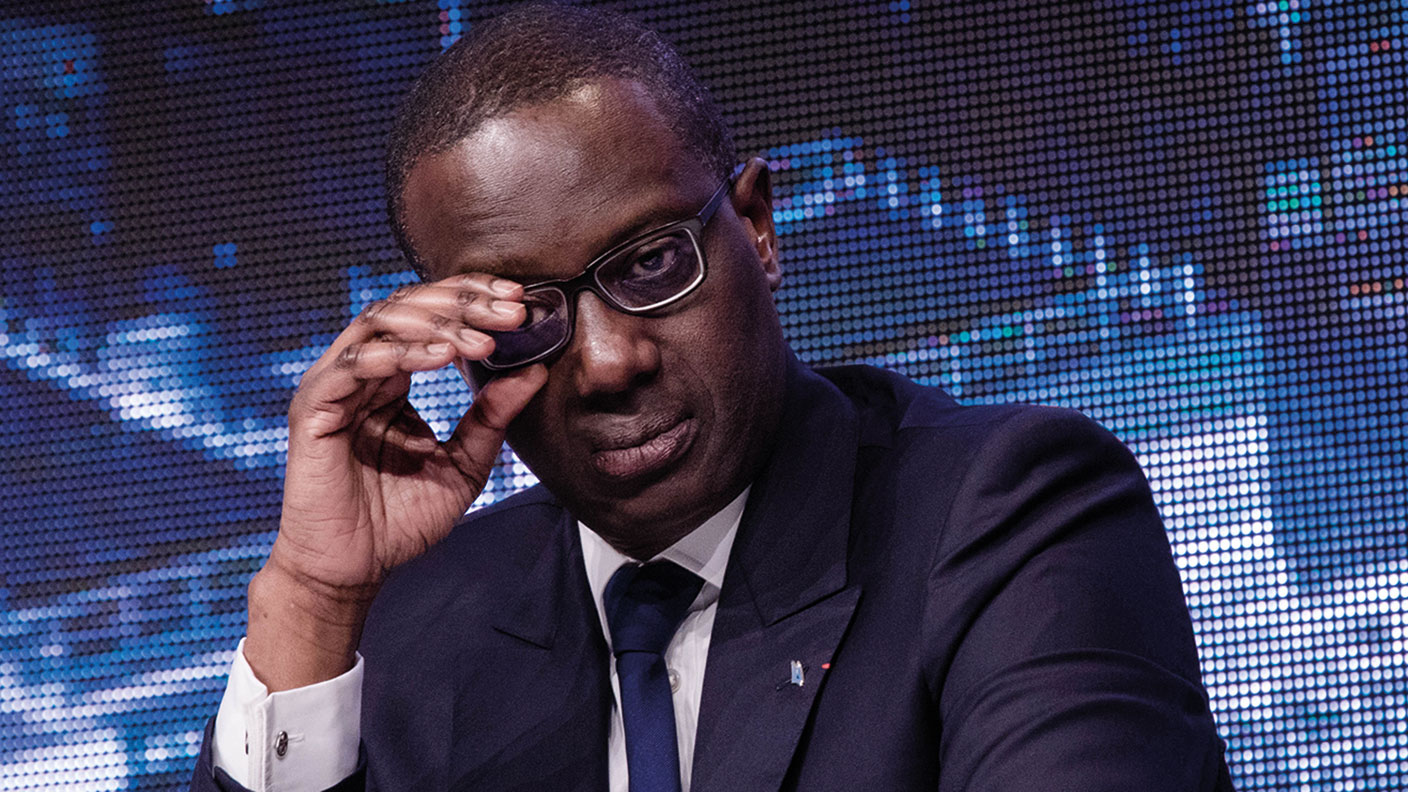The toxic mess at Credit Suisse
Swiss regulators are escalating an investigation into a corporate espionage scandal at Credit Suisse.


Get the latest financial news, insights and expert analysis from our award-winning MoneyWeek team, to help you understand what really matters when it comes to your finances.
You are now subscribed
Your newsletter sign-up was successful
Want to add more newsletters?
Swiss regulators announced last week that they were escalating an investigation into a corporate espionage scandal at Credit Suisse, says Kalyeena Makortoff in The Guardian. Credit Suisse has already admitted hiring private detectives to track two former executives: Iqbal Khan, the former head of the bank’s wealth management division, and former head of human resources Peter Goerke. While Credit Suisse has tried to reassure investors that the scandal has not affected its business, it has already been forced to sack chief operating officer Pierre-Olivier Bouée, while CEO Tidjane Thiam (pictured) was forced to resign.
The scandal is unlikely to hurt the bank’s bottom line, since Swiss regulators don’t have the power to issue fines, say Harry Dempsey and Owen Walker in the Financial Times. But this is just the latest in a “series of revelations” about the group’s involvement in “risky business”, which also includes its exposure to the collapse of fraudulent German payments group Wirecard.
The spying scandal raises “wider questions” about governance and a “toxic culture” where the board seems to have “lost control”, says Lucy Burton in The Daily Telegraph. One person “who might have the answers” about how to move on from such problems is Richard Meddings, who was appointed to Credit Suisse’s board of director in April. Meddings has been involved with trying to deal with the fallout of scandals at Deutsche Bank, which was fined $7bn by US authorities, and TSB, which was involved with “one of the sector’s worst IT meltdowns in recent history
Try 6 free issues of MoneyWeek today
Get unparalleled financial insight, analysis and expert opinion you can profit from.

Sign up to Money Morning
Don't miss the latest investment and personal finances news, market analysis, plus money-saving tips with our free twice-daily newsletter
Don't miss the latest investment and personal finances news, market analysis, plus money-saving tips with our free twice-daily newsletter
Get the latest financial news, insights and expert analysis from our award-winning MoneyWeek team, to help you understand what really matters when it comes to your finances.

-
 8 of the best properties for sale with minstrels’ galleries
8 of the best properties for sale with minstrels’ galleriesThe best properties for sale with minstrels’ galleries – from a 15th-century house in Kent, to a four-storey house in Hampstead, comprising part of a converted, Grade II-listed former library
-
 The rare books which are selling for thousands
The rare books which are selling for thousandsRare books have been given a boost by the film Wuthering Heights. So how much are they really selling for?
-
 How to invest as the shine wears off consumer brands
How to invest as the shine wears off consumer brandsConsumer brands no longer impress with their labels. Customers just want what works at a bargain price. That’s a problem for the industry giants, says Jamie Ward
-
 A niche way to diversify your exposure to the AI boom
A niche way to diversify your exposure to the AI boomThe AI boom is still dominating markets, but specialist strategies can help diversify your risks
-
 New PM Sanae Takaichi has a mandate and a plan to boost Japan's economy
New PM Sanae Takaichi has a mandate and a plan to boost Japan's economyOpinion Markets applauded new prime minister Sanae Takaichi’s victory – and Japan's economy and stockmarket have further to climb, says Merryn Somerset Webb
-
 Profit from MSCI – the backbone of finance
Profit from MSCI – the backbone of financeAs an index provider, MSCI is a key part of the global financial system. Its shares look cheap
-
 'AI is the real deal – it will change our world in more ways than we can imagine'
'AI is the real deal – it will change our world in more ways than we can imagine'Interview Rob Arnott of Research Affiliates talks to Andrew Van Sickle about the AI bubble, the impact of tariffs on inflation and the outlook for gold and China
-
 Three promising emerging-market stocks to diversify your portfolio
Three promising emerging-market stocks to diversify your portfolioOpinion Omar Negyal, portfolio manager, JPMorgan Global Emerging Markets Income Trust, highlights three emerging-market stocks where he’d put his money
-
 Exciting opportunities in biotech
Exciting opportunities in biotechBiotech firms should profit from the ‘patent cliff’, which will force big pharmaceutical companies to innovate or make acquisitions
-
 What turns a stock market crash into a financial crisis?
What turns a stock market crash into a financial crisis?Opinion Professor Linda Yueh's popular book on major stock market crashes misses key lessons, says Max King